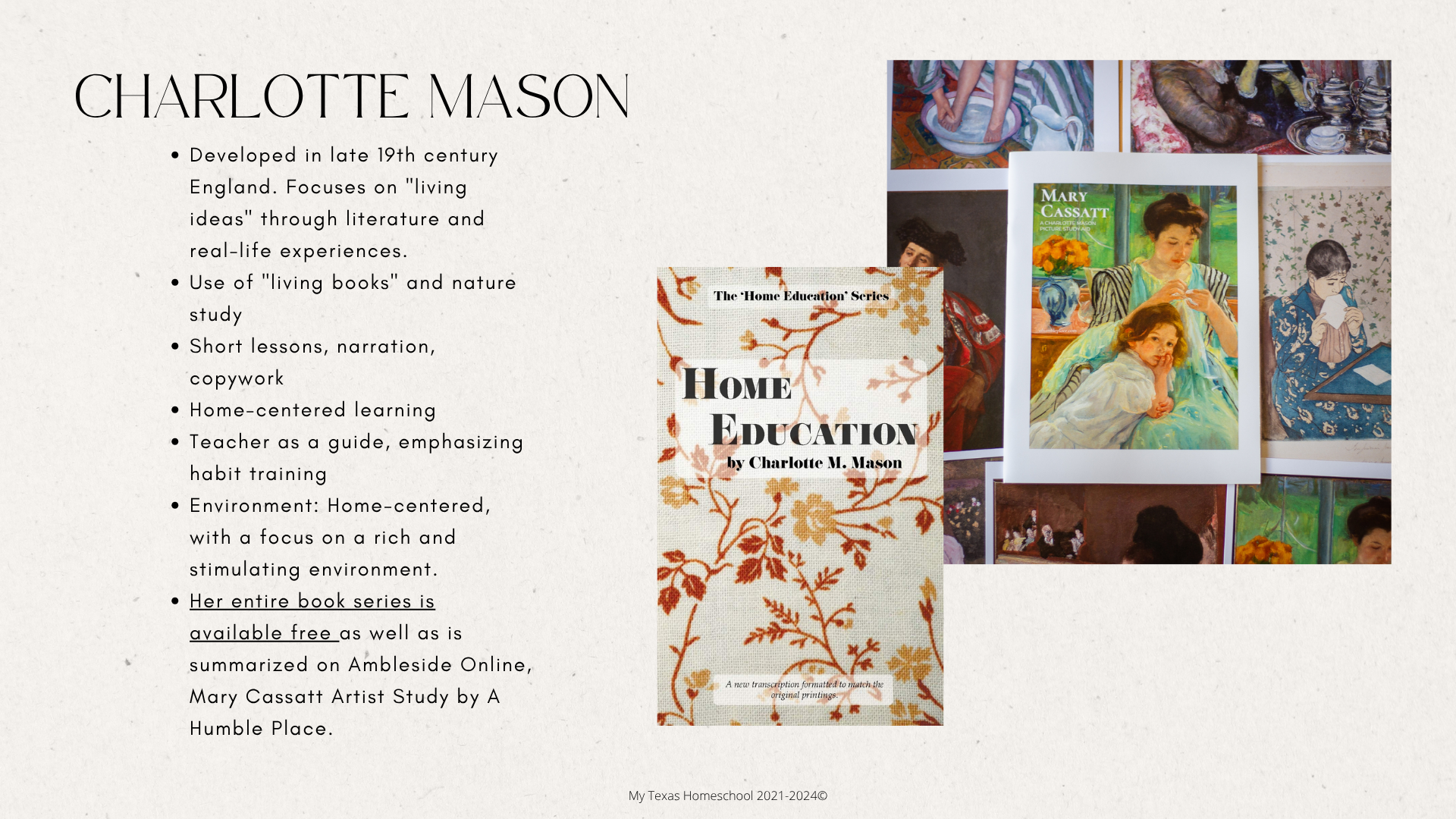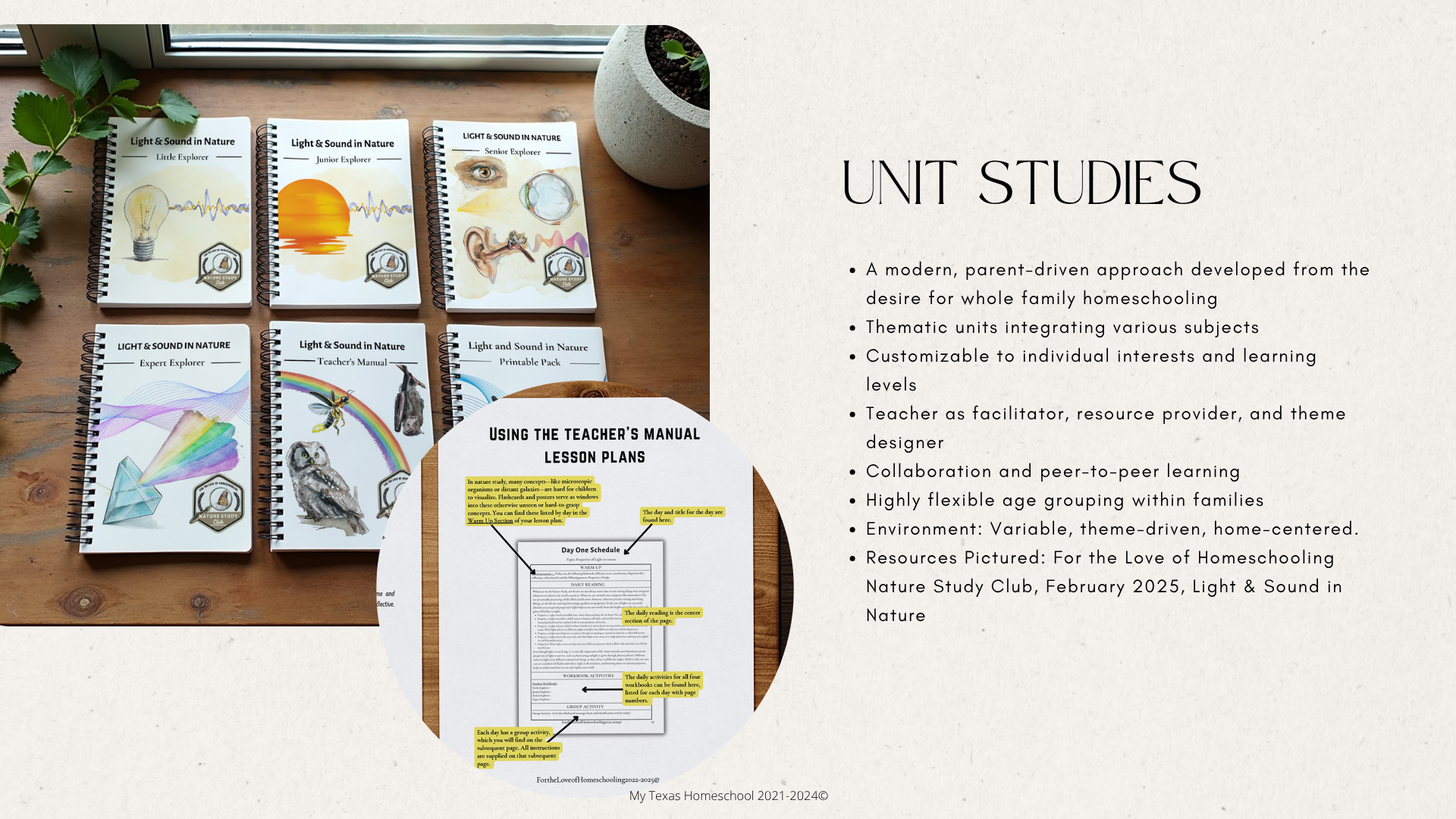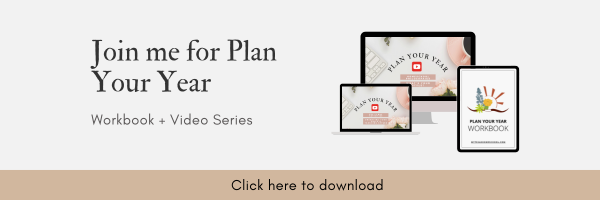Homeschool Philosophies
Starting your homeschool journey can feel overwhelming—especially when it comes to choosing the right homeschool philosophy. With so many approaches out there, how do you know which one fits your family’s values, lifestyle, and goals?
What if I told you philosophy just wasn’t the big decision maker in your homeschool? You don’t have to match a philosophy of education. The thing to do is to craft one of your own.
This post will walk you through the most popular homeschool philosophies, helping you understand the core principles behind each one. Whether you're drawn to nature-based learning, classical literature, or real-world exploration, there's a homeschool method that aligns with your vision - which is really helpful when it comes to purchasing curriculum.
By the end, you’ll have a solid grasp on each style, with links to dive deeper and ideas for getting started.
Philosophies Explained
Each homeschool philosophy offers a unique perspective on how children learn best. Understanding these methods can help you build a curriculum that supports your child’s growth and your family’s rhythm.
The Main Homeschool Philosophies
Here’s a breakdown of the most common approaches:
1. Charlotte Mason
Emphasizes living books over textbooks
Focuses on habit training, narration, and short lessons
Encourages time in nature and artist/music study
Learn more at Charlotte Mason Institute
Make it stand out
All of Charlotte Mason’s volumes are available summarized and full length at Ambleside Online
Mary Casatt Artist Study by A Humble Place
My Favorite Charlotte Mason resource provider is Delightfully Feasting Press. Crystin is a gem and makes amazing studies by term.
2. Classical Education
Trivium structure: Grammar, Logic, and Rhetoric stages
Strong focus on memorization, logic, and ancient texts
Integrates Latin and Socratic questioning
Explore The Well-Trained Mind
Gentle+Classical Press - They offer a wide variety of classical studies
Well trained Mind is another favorite for classical resources
3. Montessori
Child-led and hands-on learning
Mixed-age classrooms, real-life skills
Encourages independence and respect for a child’s pace
Pictured Science curricula by Living Montessori Now
Multiplication Squares by Love School at Home (no shop currently)
Trinomial Cube printable by MindsproutPH
4. Unschooling
Also known as interest-led learning
No formal curriculum; learning is driven by the child’s curiosity, and involves heavy parental facilitation and pursuit of what is needed for the child’s interests
Emphasizes autonomy and real-world experiences
Further reading: John Holt GWS
5. Unit Studies
Integrates subjects around a central theme
Ideal for multi-age families
Hands-on and flexible structure
See our related post: How to Plan a Unit Study (Coming Soon)
Pictured Study is Light & Sound in Nature from For the Love of Homeschooling Nature Study Club
6. Traditional/School-at-Home
Structured, textbook-based, similar to public school
Clear expectations and familiar routine
Easy to find graded curriculum packages
Bonus Read: Our Favorite Homeschool Curriculum by Grade
7. Waldorf
Prioritizes imaginative play, handwork, and storytelling
Delays formal academics until around age 7
Strong focus on rhythm and seasonal learning
Read more at Waldorf Today
Waldorf Fractions by Beauty of Play
Happy Hedgehog Post makes art studies, subscription boxes, and felting projects
Waldorf Inspired Spanish Waldorf bilingual lessons
How to Choose a Homeschool Philosophy
Every family is different—and that’s the beauty of homeschooling!
Consider these factors when choosing a style:
Your child’s learning style (visual, auditory, kinesthetic)
Your teaching style and preferences
Family schedule and lifestyle (structured vs. flexible)
Budget and resources available
Long-term goals, such as college prep or life skills
You can also blend philosophies—many families are “eclectic homeschoolers” who pick what works best from multiple styles.
Ready to Start Homeschooling with Confidence?
Whether you're drawn to Charlotte Mason’s living books, Classical education’s rigor, or the creative freedom of Unschooling, there's a homeschool philosophy, or a blend of them, for every family.
📘 Explore our free Plan your Year Workbook & Video Series to get started with confidence.








